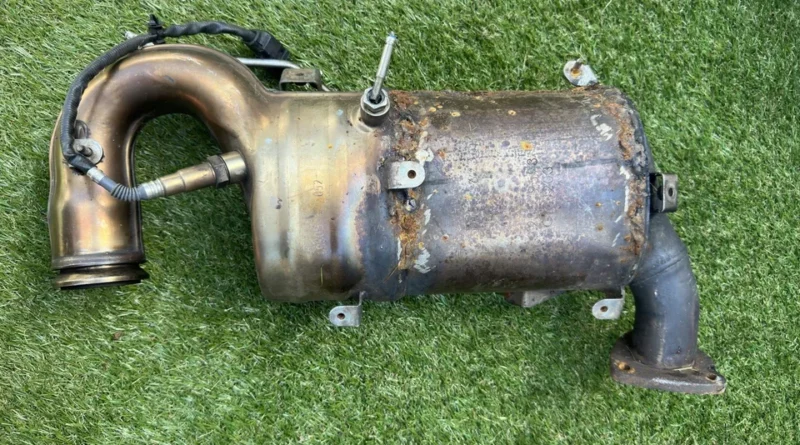Guide What is DPF Cleaning?
This article delves into what DPF cleaning is, its importance, methods, and benefits. Diesel Particulate Filters (DPFs) are crucial components in modern diesel engines, designed to reduce harmful emissions by trapping soot and other particulate matter. Over time, these filters can become clogged, necessitating DPF cleaning to maintain engine performance and compliance with emissions standards.
Understanding Diesel Particulate Filters (DPFs)
A Diesel particulate filter is a device installed in the exhaust system of diesel engines to capture and store exhaust soot, reducing emissions. This filter traps particulate matter, preventing it from being released into the atmosphere. However, as the DPF collects soot, it becomes clogged, which can lead to decreased engine performance and increased fuel consumption.
Why Diesel Particulate Filter Cleaning is Important
- Maintains Engine Performance
- A clogged DPF can cause a significant drop in engine power and efficiency. Regular cleaning ensures that the filter functions correctly, maintaining optimal engine performance.
- Prevents Costly Repairs
- Ignoring a blocked DPF can lead to severe engine damage and costly repairs. Regular cleaning helps prevent such issues, saving money in the long run.
- Ensures Compliance with Emissions Standards
- Many regions have stringent emissions regulations. A clean DPF helps vehicles comply with these standards, avoiding fines and legal issues.
- Improves Fuel Efficiency
- A clean DPF reduces backpressure in the exhaust system, leading to improved fuel efficiency and lower operating costs.
Methods of DPF Cleaning
1. Passive Regeneration
Passive regeneration occurs naturally when the exhaust temperature is high enough to burn off the accumulated soot in the DPF. This process often happens during long drives or highway speeds where the engine operates at a higher temperature.
2. Active Regeneration
Active regeneration is initiated by the vehicle’s engine control unit (ECU) when the soot level reaches a certain threshold. The ECU injects extra fuel into the exhaust system to raise the temperature and burn off the soot. This process may cause a slight increase in fuel consumption.
3. Forced Regeneration
Forced regeneration is a manual process performed by a mechanic using specialized equipment. This method is used when passive and active regenerations are insufficient. The vehicle is connected to a diagnostic tool that triggers the regeneration process, burning off the soot at high temperatures.
4. Off-Vehicle Cleaning
Off-vehicle cleaning involves removing the DPF and cleaning it using various methods, such as:
- Ultrasonic Cleaning: Submerging the DPF in an ultrasonic bath to dislodge and remove soot and ash.
- Thermal Cleaning: Baking the DPF at high temperatures to convert soot into ash, followed by blowing out the ash with compressed air.
- Chemical Cleaning: Using chemical solutions to dissolve and wash away the soot and ash from the DPF.
Signs Your Diesel particulate filter Needs Cleaning
- Warning Lights: The DPF warning light on the dashboard indicates that the filter is clogged and needs cleaning.
- Reduced Engine Performance: A noticeable drop in power and acceleration can signal a blocked DPF.
- Increased Fuel Consumption: A clogged DPF can cause higher fuel consumption due to increased backpressure.
- Frequent Regenerations: If the vehicle frequently goes into active regeneration mode, it may indicate that the DPF is not effectively cleaning itself.
Benefits of Regular Cleaning
- Extended Lifespan
- Regular cleaning helps extend the life of the DPF, reducing the need for costly replacements.
- Improved Vehicle Performance
- A clean DPF ensures that the engine operates smoothly and efficiently, providing better overall performance.
- Environmental Benefits
- Effective DPF cleaning reduces harmful emissions, contributing to a cleaner environment and better air quality.
- Cost Savings
- Regular maintenance and cleaning prevent expensive repairs and improve fuel efficiency, leading to significant cost savings over time.
DPF cleaning is an essential maintenance task for diesel vehicles, ensuring optimal engine performance, fuel efficiency, and compliance with emissions standards. By understanding the importance and methods of DPF cleaning, vehicle owners can maintain their vehicles better and avoid costly repairs. Regular DPF cleaning not only benefits the vehicle but also contributes to a cleaner and healthier environment.
Buying a used VW. Buying used vauxhall, BMW, Jaguar, Ford, Volvo, Range rover, Bentley, Aston Martin, Porsche, Ferrari, Lamborghini, Maserati, Hyundai, Tesla, Honda, Pagani

